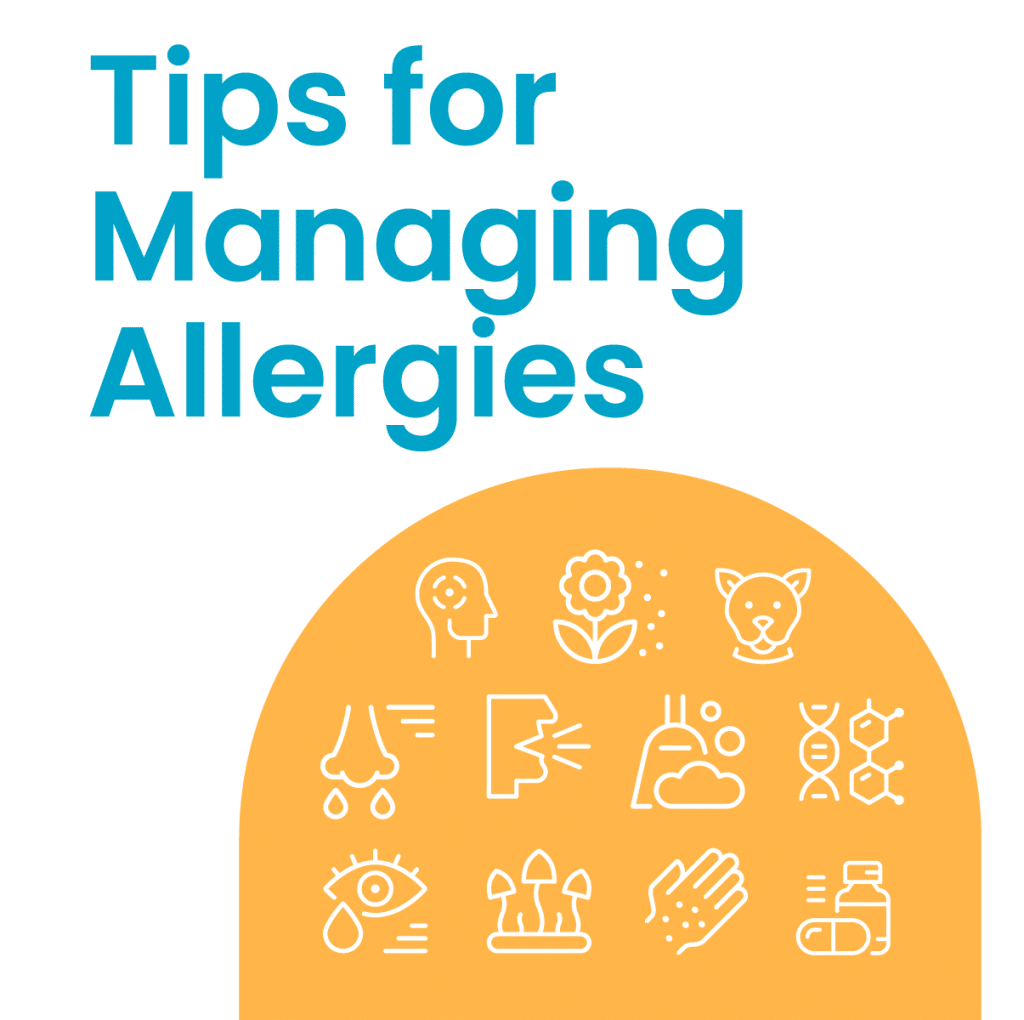Tips for Managing Allergies this Season
March 22, 2023

Spring is here! We get to embrace the sunshine and enjoy participating in outdoor activities. Spring, however, is not fun for those who suffer from seasonal allergies. Grass pollens, tree allergens and ragweed pollens are the main culprits. Sneezing, runny nose and itchy eyes are the minor symptoms associated with seasonal allergies. For some people, however, the reaction can be severe — coughing, wheezing or having an asthma attack.
According to the Canadian Allergy, Asthma and Immunology Foundation, one in every four or five Canadians (20 to 25% of the population) has allergic rhinitis (also referred to as “hay fever”). If you fall into this category, here are five tips to help you manage and reduce your allergy symptoms this season.
Spring clean your home: Closing up your home during winter can allow dust and other allergens to settle. Deep cleaning your home can help reduce allergens and germs and give your home a fresh start for the new season. Remember to wear a mask while cleaning to prevent irritation.
Keep indoor air clean: This applies to your house and vehicles. During peak pollen season, keep windows and doors closed and use air conditioning to filter the air. Consider using a HEPA air filter to remove pollen and other allergens from the air. Remember to change your home furnace filters regularly (at least every three months).
Reduce your exposure to triggers: Track local pollen counts and avoid going outside during times when they are high. You can check pollen counts online, through weather apps, or by listening to local weather reports.
Practice good hygiene: Pollen and other allergy-triggering elements can easily cling to your clothes, skin, and hair. After spending time outdoors, take a shower or wash your face and hands to remove pollen. Change your clothes and keep outdoor shoes in a separate area of your home to avoid tracking pollen inside.
Over-the-counter medications: Antihistamines, decongestants, and nasal corticosteroids can provide relief from seasonal allergy symptoms. Consult with our Well and Truly RX team to find the best medication for your needs. If you experience severe allergy reactions or anaphylaxis, an Epipen may also be recommended.
Allergies are best managed by being proactive about reducing exposure and managing symptoms. If your symptoms continue to be difficult to manage or become severe, consult your medical care provider to determine the best course of treatment for you.
Sources: Health Canada, Asthma Canada, Public Health Agency of Canada
The content on this website is for informational purposes only. No material on this site is intended to be a substitute for professional medical advice, diagnosis, or treatment. Always seek the advice of your physician with any questions regarding a medical condition or treatment, and before undertaking a new health-care regimen.